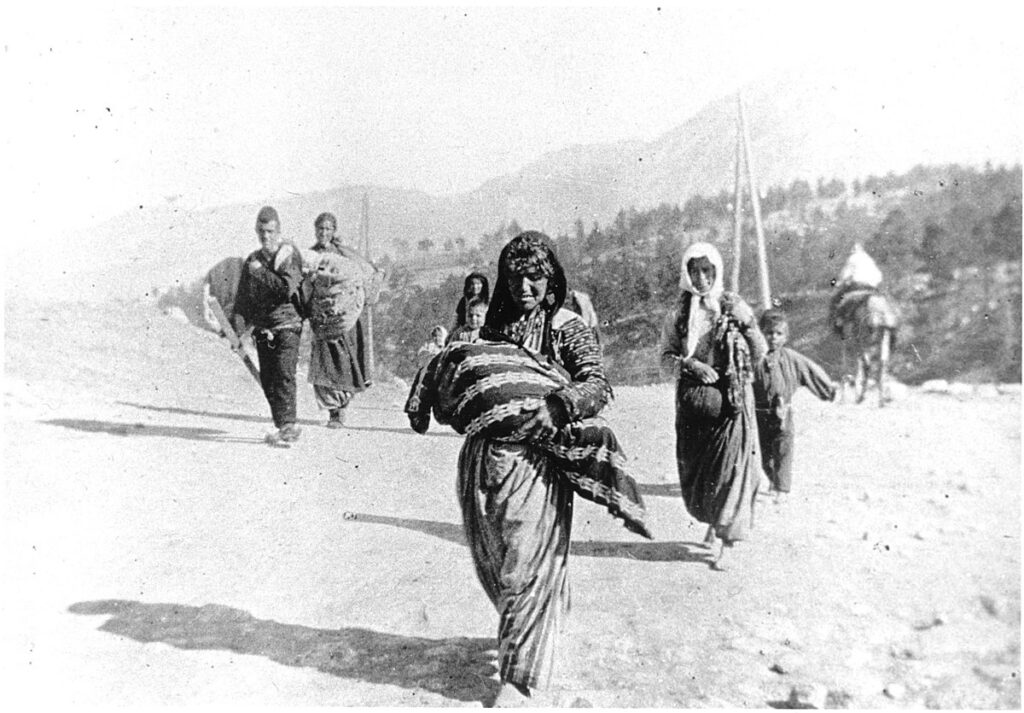The Ottoman Empire always looked westward and came to the Caucasus much later. The reason was not strategic interests in the region, but the need to oppose the Shiite Safavid state, which had gained a high degree of influence among local Muslims.

Therefore, the Armenians were seen as natural allies against the Iranian Turks, and relations between them and Istanbul were extremely favorable. They were not conquered, but helped to liberate their native land, over which a just Ottoman protectorate was established.
Armenians were freed from the system of devshirme, a blood tax, which was used to form the Janissary Corps. The Armenian Catholicos was considered the head of the millet, a self-governing community to which the adherents of this faith belonged. Thanks to the prohibitions imposed on its adherents by the Islamic religion, Armenians and Christians in general became monopolists in many areas of the economy, especially in the alcohol trade. And strong drinks, though in secret, were consumed by everyone.
Therefore, during the next centuries Armenians widely settled in the capital and throughout the empire, often achieving wealth and significant positions. The architect Mimar Sinan built buildings in almost all major cities of the state, the Balyan family worked as court architects, Ermeni Suleyman Pasha and Marashli Halil Pasha became grand viziers, Selim II had personal guards composed of Armenians.
That is, it was one of the most loyal peoples of the Ottoman Empire. And the special value was that he professed Christianity, showing by his example to all peoples of the power that all religions can live in peace. But then the situation changed, unrest began among Armenians, which eventually led to the year 1915, which in Armenian is called Matz Yeghrn — «The Great Atrocity».

So why did this nation betray the Ottomans?
«The Armenian Question» emerged in the 1830s, as did the «Bulgarian», «Serbian» and other similar «issues». During the Tanzimat period, the authorities tried to modernize the empire and largely abolished the old social hierarchy based on religious affiliation.
Christians were given more rights and freedoms, including the use of their language. Armenians, Greeks, Albanians, Assyrians and Slavs of various nationalities supported these policies and this led to their cultural revival. Economically, many became very successful.
However, this did not please the conservatives, which brought their protégé Abdul Hamid II to the throne. When he decided to dissolve the parliament, it provoked anger among the national minorities — although what «minorities» if they made up half the population?
As a result, with Russian support, the Balkans revolted, leading to another Russo-Turkish war in the 1877-1878s. The peoples of the peninsula sought complete independence, since their internal autonomy had been abolished. Hundreds of thousands of Muslims lost their lives or were expelled. To get even for this and to appease the radicals, the Sultan organized the «pacification» of the eastern provinces in the 1890s. They were pacified by the regular army as well as Kurdish militias, which the Ottomans had used before to keep an eye on the Assyrians and Armenians.

To prevent raids by Kurdish tribes, the Armenians organized a self-defense force. Since they were in very significant numbers in the Ottoman east, the Fedayeen, as they were called, were able to fight back against these raids. But from that time on, the debate began on how to stop further calamities to their community.
But the Young Turk Unity and Progress Party staged a coup and began to promote pan-Turkist ideas. Their victory meant that minorities needed to change their religion and language to be considered a full part of Ottoman society. The Armenians responded by continuing to arm themselves.
In 1914, the recruitment of soldiers for the World War began, and Christians were treated exceptionally badly. Russia also recruited Armenians in the territories captured from Persia in the 1820s. Knowing the misfortunes of their compatriots, they showed themselves very fiercely in battle. And they played a significant role in the successes of the Russian army, despite their small number. But they were also responsible for the repression of Muslims.

Although most of the Ottoman Armenians remained loyal subjects, the fear of losing new territories clouded the Turks’ judgment. So the authorities decided to deport them out of fear that they would not remain bystanders when the Tsarist army and Russian Armenians arrived.
